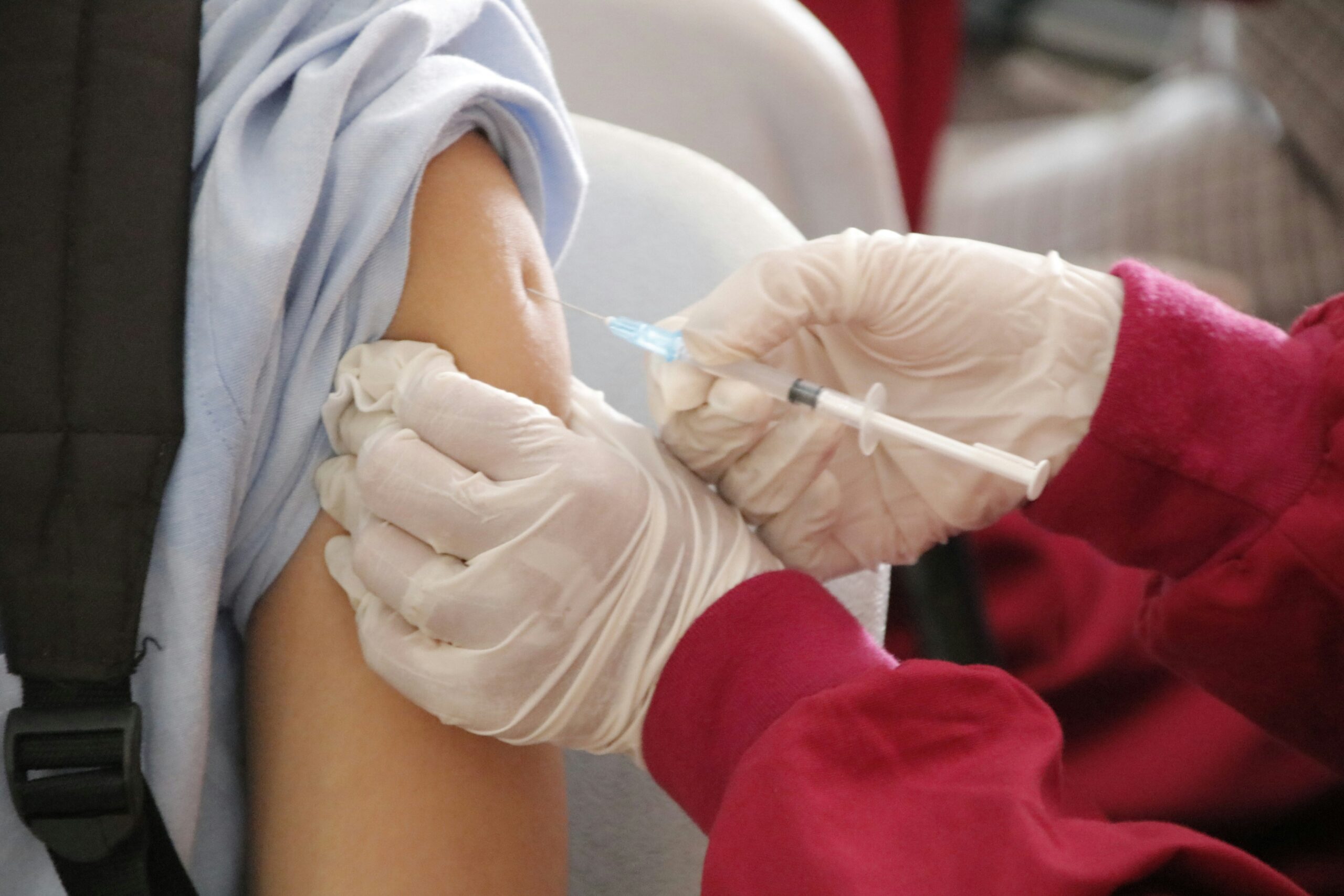Quadrupledemic UK 2024: 5 Shocking Threats to Your Health!
Table of Contents
ToggleUK Quadrupledemic Threat
As winter approaches, the UK faces a significant health challenge with the looming threat of a quadrupledemic. This term refers to the potential simultaneous outbreak of four major illnesses: COVID-19, flu, respiratory syncytial virus (RSV), and norovirus. Health experts warn that the overlap of these infections could overwhelm the National Health Service (NHS) and pose severe risks, particularly for vulnerable populations like the elderly and young children.

© Getty
Rising Concerns About Norovirus
Recent data shows a staggering 29% rise in norovirus cases from September 23 to October 6, with many people reporting feeling worse than ever before. This surge is happening alongside the spread of a new COVID variant, XEC, and an expected increase in seasonal illnesses like flu and RSV. Dr. Roger Henderson, a family GP, emphasizes the seriousness of the situation, stating, “There is a risk that we could see a quadrupledemic this winter.”
When these infections overlap, they create a heightened risk, especially for individuals who are already vulnerable. The combination of these illnesses could lead to more severe health issues and increased hospitalizations, putting additional strain on the NHS.
Symptoms to Watch For
With the quadrupledemic threat on the horizon, it’s essential to recognize the symptoms of each illness early. Here are some common signs to look out for:
- COVID-19: Symptoms include fever, cough, loss of taste or smell, and fatigue.
- Flu: This typically presents with high fever, chills, body aches, and fatigue.
- RSV: Often causes respiratory symptoms such as a runny nose, cough, and wheezing.
- Norovirus: Characterized by sudden onset of vomiting, diarrhea, stomach cramps, and sometimes fever.
Dr. Henderson advises people to be aware of these symptoms and to seek treatment early to mitigate the risk of complications.
Importance of Hygiene
One of the most effective ways to prevent the spread of these illnesses is through good hygiene practices. Dr. Henderson stresses the importance of washing hands frequently and thoroughly, especially after coughing, sneezing, or coming into contact with someone who is sick. This simple act can significantly reduce the transmission of winter bugs.
In addition to handwashing, health experts recommend the following practices to help prevent infection:
- Use Masks: Wearing masks in crowded indoor spaces can reduce the spread of respiratory viruses.
- Stay Home When Sick: If you or a family member is unwell, it’s crucial to stay home to avoid spreading illness to others.
- Avoid Close Contact: Try to maintain distance from individuals who are exhibiting symptoms of illness.
The Dangers of Norovirus
Carolina Goncalves, a superintendent pharmacist for Pharmica, has also voiced concerns about the quadrupledemic threat. She highlights the risks associated with norovirus, particularly its ability to cause rapid dehydration, which can be dangerous. Symptoms of dehydration include:
- Dizziness
- Confusion
- Reduced urination
- Dark urine
If you or someone you know experiences these symptoms, it’s important to seek medical attention immediately to prevent further complications.
Vulnerable Populations at Risk
The quadrupledemic is especially concerning for specific groups. Older adults, young children, and individuals with weakened immune systems are at a higher risk of severe illness when faced with multiple infections. Health officials urge families to be extra cautious during the winter months, ensuring that vulnerable members of the community take preventive measures seriously.
Dr. Henderson and Goncalves both emphasize that most healthy individuals recover from norovirus within one to three days. However, for those who are more susceptible, the risks can be significantly greater.
Strategies for Protection
To combat the potential quadrupledemic, individuals and families should take proactive steps to protect themselves and their loved ones. Here are some strategies to consider:
- Vaccination: Ensure that everyone in your family gets vaccinated against the flu and COVID-19. This is one of the most effective ways to reduce the risk of severe illness.
- Stay Informed: Keep up-to-date with the latest health information and guidelines from reputable sources, such as the NHS and Public Health England.
- Boost Your Immune System: A healthy diet, regular exercise, and adequate sleep can help strengthen your immune system, making it easier for your body to fight off infections.
- Plan for Illness: Have a plan in place for when illness strikes. This might include having medications, hydration solutions, and comfort supplies ready at home.
- Check on Vulnerable Neighbors: If you have elderly or sick neighbors, check in on them to ensure they have the support they need during the winter months.
Conclusion
As the UK braces for the potential quadrupledemic this winter, awareness and preparation are key. By understanding the symptoms of these illnesses, practicing good hygiene, and taking preventive measures, individuals can reduce their risk and protect their health. The combination of COVID-19, flu, RSV, and norovirus could create a challenging winter, but with vigilance and community support, we can navigate this difficult season together. Stay informed, stay healthy, and help protect those around you.
Related:
“XEC Variant Symptoms: 5 Terrifying Signs You Can’t Ignore!”




